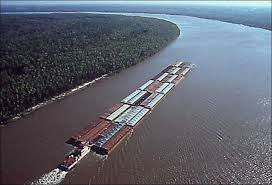News
Low water levels cost farmers money

Barge traffic on the lower Mississippi River is backing up as the lack of water has river levels at a record low.
The Army Corps of Engineers says the river stage at Memphis, Tennessee was negative 10.79 Monday, or almost eleven feet below normal, passing a record set in 1988.
Mike Steenhoek with the Soy Transportation Coalition tells Brownfield the narrower and shallower river channel means less cargo per barge and fewer barges to a tow, increasing shipping costs. “That rate has increased 383% versus this same period last year, so a dramatic escalation in barge rates.”
And, Steenhoek says a lot of those shipping costs are passed on to farmers in the form of a more negative basis, or lower price, at the point of sale. “They’re not just theoretical. They’re not just hypothetical. They have real consequence, tangible consequence on a farmer’s individual wallet and this is a great reminder of that.”
Steenhoek says more of the grain exports are leaving through the Pacific Northwest because of the problems with the inland waterway system, but there’s uncertainty there because of the unresolved railroad labor contracts and the possibility of a railroad work stoppage.
Steenhoek tells Brownfield the shipping challenges are happening during the peak of U.S. exports and complicate grain handling during harvest.

Add Comment